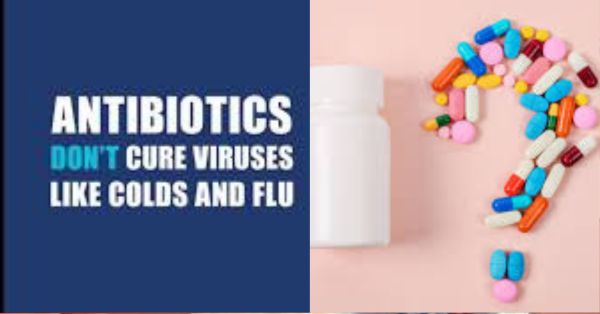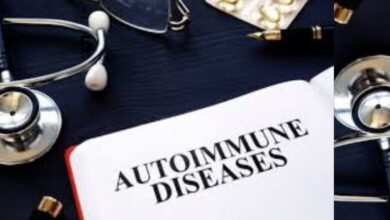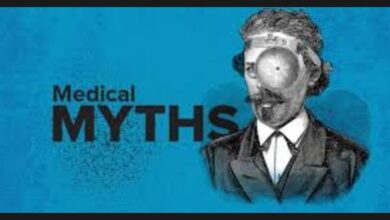Antibiotics Won’t Cure Your Cold—Here’s Why Doctors Say No

Antibiotics Won’t Cure Your Cold—Here’s Why Doctors Say No – We’ve all been there—sniffling, sneezing, and feeling like death warmed over. You drag yourself to the doctor, hoping for a quick fix, only to be told, “It’s just a virus. Antibiotics won’t help.”
Frustrating, right?
But here’s the hard truth: Your doctor isn’t being stingy with prescriptions—they’re saving lives.
Antibiotic resistance is one of the biggest threats to modern medicine, and the overuse of these drugs is fueling superbugs that could make common infections deadly again. So why do so many people still demand antibiotics for colds? And why are doctors so adamant about refusing?
Let’s break it down—with science, real-world consequences, and what you should do instead.
Why Antibiotics Don’t Work on Colds (And Never Will)
First, let’s clear up a major misconception: Colds are caused by viruses. Antibiotics kill bacteria.
It’s like using a fire extinguisher on a flood—completely useless.
-
Viruses vs. Bacteria:
-
Viruses (like those causing colds, flu, and COVID-19) hijack your cells to replicate.
-
Bacteria (like strep throat or UTIs) are living organisms that antibiotics can target.
-
Antibiotics attack bacterial cell walls or disrupt their reproduction. But since viruses aren’t alive in the same way, these drugs do absolutely nothing against them.
Yet, studies show that 30-50% of antibiotic prescriptions are unnecessary, often given for viral infections due to patient pressure. This isn’t just wasteful—it’s dangerous.
The Scary Rise of Antibiotic Resistance (And Why It Affects YOU)
Here’s where things get terrifying: Every time antibiotics are misused, we edge closer to a post-antibiotic era.
-
How Resistance Happens:
-
Bacteria multiply rapidly.
-
A few might randomly mutate to resist an antibiotic.
-
If you take antibiotics unnecessarily, the weak bacteria die, but the resistant ones survive and spread.
-
The result? Superbugs—bacteria that laugh at our best drugs.
-
Real-World Consequences:
-
23,000+ deaths per year in the U.S. alone from antibiotic-resistant infections.
-
Routine surgeries (like C-sections or hip replacements) could become deadly without working antibiotics.
-
Diseases like tuberculosis are becoming untreatable in some regions.
-
This isn’t a distant future problem—it’s happening now. And every unnecessary antibiotic prescription speeds it up.
Why Doctors Refuse to Prescribe Antibiotics for Colds
Doctors aren’t just being difficult. They’re following science and ethics.
-
They Know It Won’t Help
-
Antibiotics don’t reduce cold symptoms or speed up recovery.
-
At best, they do nothing. At worst, they cause side effects (diarrhea, yeast infections, allergic reactions).
-
-
They’re Preventing Resistance
-
Responsible doctors limit antibiotic use to preserve their effectiveness.
-
-
They’re Protecting YOU
-
Unnecessary antibiotics wipe out your good gut bacteria, weakening your immune system long-term.
-
Yet, many patients still push for them. A study found that patients who expected antibiotics were 4x more likely to get them, even when doctors knew they were useless.
“But My Last Doctor Gave Me Antibiotics!” – The Placebo Effect Problem
Some doctors do prescribe antibiotics unnecessarily—often to avoid conflict or because patients insist.
This creates a vicious cycle:
-
Patient demands antibiotics → Doctor caves → Patient feels better (due to time, not meds) → Next time, patient demands them again.
The placebo effect is powerful. If you believe the pills helped, you’ll credit the antibiotics—even though your immune system did all the work.
But this habit is fueling resistance and training patients to expect drugs they don’t need.
What Actually Helps a Cold (Evidence-Backed Remedies)
Since antibiotics are off the table, what should you do?
1. Rest and Hydration (Boring But Effective)
-
Your immune system fights viruses best when you’re rested.
-
Warm fluids (tea, broth) soothe throats and loosen mucus.
2. Honey for Coughs (Better Than Cough Syrup)
-
Studies show honey is more effective than OTC cough meds.
-
(Note: Never give honey to infants under 1 year.)
3. Zinc Lozenges (If Taken Early)
-
Can shorten cold duration by ~33% if taken at the first sign of symptoms.
4. Nasal Saline Rinses (Clears Congestion Naturally)
-
Neti pots or saline sprays help flush out viruses.
5. Pain Relievers (For Fever and Discomfort)
-
Acetaminophen (Tylenol) or ibuprofen (Advil) reduce fever and aches.
When Should You Take Antibiotics? (Legitimate Uses)
Antibiotics are lifesaving when used correctly. Key signs you might need them:
-
Symptoms lasting 10+ days (possible bacterial sinus infection).
-
High fever + green/yellow mucus (but color alone isn’t a sure sign).
-
Strep throat (confirmed by test).
-
UTIs or bacterial pneumonia.
Never self-diagnose. If you suspect a bacterial infection, see a doctor—but don’t demand antibiotics. Let them decide.
How to Be a Responsible Patient (Without Begging for Pills)
-
Trust Your Doctor – If they say it’s viral, accept it.
-
Ask for Alternatives – “What can I do to feel better?”
-
Prevent Colds Naturally – Wash hands, sleep well, and boost immunity with vitamin D.
-
Spread Awareness – Educate friends/family on antibiotic resistance.
Final Thought: The Next Time You Have a Cold, Do Nothing (Seriously)
Modern medicine has trained us to expect a pill for every ill. But sometimes, the best treatment is patience.
Your cold will pass—with or without antibiotics. But by avoiding unnecessary drugs, you’re protecting yourself (and everyone else) from a much scarier future.
So next time your doctor says no, thank them. They’re not withholding treatment—they’re safeguarding the miracle of antibiotics for when we truly need them.
Because one day, your life may depend on it.
Read Also: Sugar Doesn’t Cause Hyperactivity in Kids—The Surprising Truth Behind the Myth








